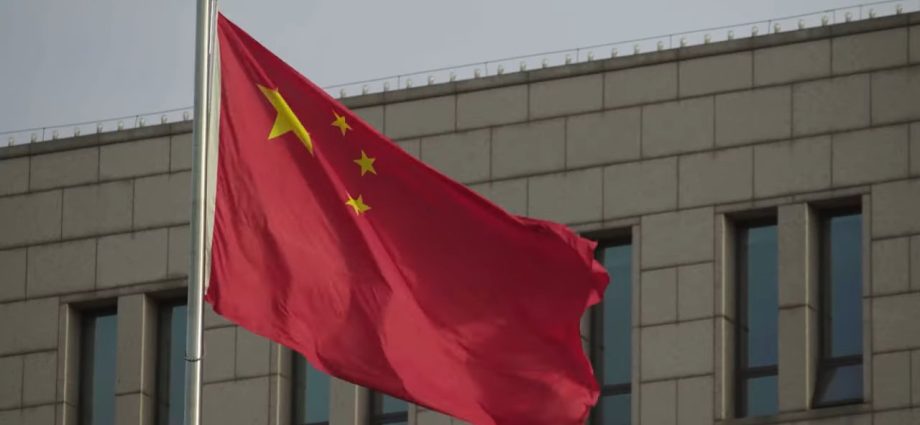Understanding China’s Banking Sector Issues
Chinese banks are currently facing significant challenges, primarily due to a hidden debt crisis. This crisis, estimated to be between $7 trillion to $11 trillion, has a profound impact on China’s economy. The hidden debt, largely off-balance-sheet government debt, poses a high risk of default, with economists estimating that 400 to 800 billion of China’s hidden bank debt is at high risk. This hidden debt is a result of money borrowed by local governments for various infrastructure projects, such as roads and bridges. The Chinese Communist Party (CCP) has attempted to address this issue by merging hundreds of small banks into larger ones. However, this strategy may only serve to transfer the bad debt to new banks, without addressing the fundamental issues at hand.
The CCP’s Banking Sector Strategies
The CCP’s approach to resolving the banking crisis involves merging small banks into larger entities. While this may provide the CCP with more control over the banking sector, it does not necessarily lead to improved bad-loan ratios. The merging of banks could simply consolidate the existing bad debt into larger institutions, potentially exacerbating the issue in the long run. The challenges in resolving the banking crisis are substantial, requiring a comprehensive strategy that goes beyond mere mergers.
McDonald’s Expansion Plans in China
McDonald’s is planning a significant expansion in China, aiming to have more than 10,000 restaurants in the country by 2028. This growth strategy reflects McDonald’s confidence in the Chinese market and its commitment to serving the Chinese consumer base. However, expanding in China comes with its own set of challenges and opportunities. The implications of McDonald’s expansion on the Chinese market are significant, as it could potentially reshape the fast-food industry in the country.
Biden Administration’s Preparedness for Conflict with China
The Biden administration is taking proactive measures to prepare for potential conflict with China. One such measure includes replacing China-made cranes at US shipping ports to mitigate espionage risks. This strategy reflects the administration’s commitment to strengthening US infrastructure security and reducing reliance on Chinese-made equipment. The administration’s efforts to address US-China relations under Biden’s leadership are crucial for maintaining stability in the region.
China’s State-Owned Enterprises and Social Unrest
China’s state-owned enterprises (SOEs) are preparing for potential social unrest by reviving Mao Zedong-era militias. These militias are small armies meant to protect companies during protests, indicating the authorities’ increasing concern about social and political instability. The revival of these militias highlights the challenges faced by the Chinese government in maintaining social stability amid economic slowdowns and other internal challenges.
Increase in Chinese Nationals Illegally Entering the US
There has been a significant increase in the number of Chinese nationals illegally entering the US, with 30,000 crossing in the last four months alone, compared to just 55 in the same period three years ago. This surge in illegal immigration is driven by various factors, including economic hardships and political unrest in China. The US response to this influx of illegal immigrants is crucial for maintaining border security and addressing the underlying issues that drive illegal immigration.
US House of Representatives’ Uyghur Policy Act
The US House of Representatives has passed the Uyghur Policy Act, aiming to raise international awareness about the CCP’s persecution of Uyghurs. This act mandates the creation of a strategy to address the CCP’s persecution of minorities and establishes a Coordinator for Uyghur Issues within the State Department. The act’s passage reflects growing international concern over human rights abuses in China and the need for a coordinated response to address these issues.
US Lawmakers’ Blacklist for Lobbying Firms
US lawmakers are considering a blacklist for US firms lobbying on behalf of Chinese military-linked companies. This proposed blacklist would prevent congress people from meeting with lobbying firms representing Chinese companies on the Pentagon’s entity list. The aim of this blacklist is to address potential conflicts of interest and reduce Chinese influence on US policy-making. The proposed blacklist reflects growing concerns about Chinese influence in US politics and the need for greater transparency in lobbying activities.
Complexities in Russia-China Relations
The relationship between Russia and China is complex, with various factors influencing their interactions. US sanctions on Russia over the Ukraine invasion have affected Chinese business interests, adding to the complexities of their relationship. Despite these challenges, both countries continue to cooperate in various areas, including energy and security. The future outlook for Russia-China cooperation remains uncertain, as both countries navigate their respective geopolitical challenges.
China’s banking sector is currently grappling with a series of formidable challenges, most notably a hidden debt crisis that looms large, posing a significant risk of default. The strategies implemented by the Chinese Communist Party (CCP) to tackle these issues, such as the merging of banks, while proactive, may not prove to be entirely sufficient in resolving the deep-seated problems at hand.
On a different front, McDonald’s ambitious expansion plans in China not only underscore the company’s unwavering confidence in the Chinese market but also shed light on the formidable challenges inherent in operating within such a complex and highly competitive environment. The fast-food giant’s strategies and adaptability in navigating the intricacies of the Chinese market offer valuable insights into the complexities of global business operations in a rapidly evolving economic landscape.
Against the backdrop of these economic dynamics, the Biden administration’s strategic efforts to prepare for potential conflicts with China underscore the paramount importance of maintaining strong and stable US-China relations. The intricacies of these relationships, which encompass economic, political, and strategic dimensions, highlight the need for a nuanced and multifaceted approach to diplomacy and international relations.
In light of these multifaceted challenges and opportunities, it becomes increasingly evident that addressing the complexities of China’s domestic and international affairs necessitates a comprehensive and integrated approach. Such an approach must not only account for the economic and geopolitical realities but also factor in the social, cultural, and historical nuances that shape China’s interactions with the world.

